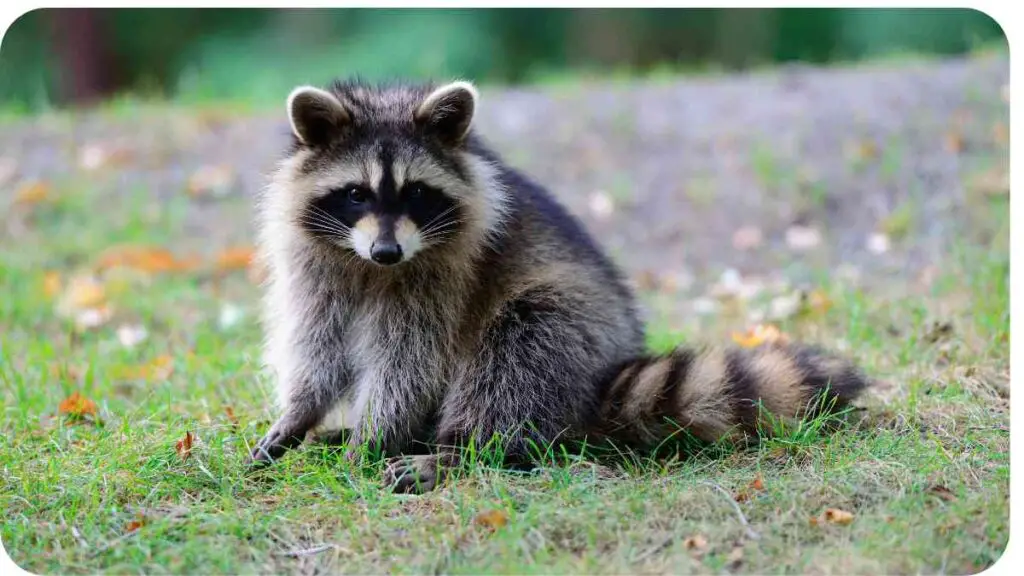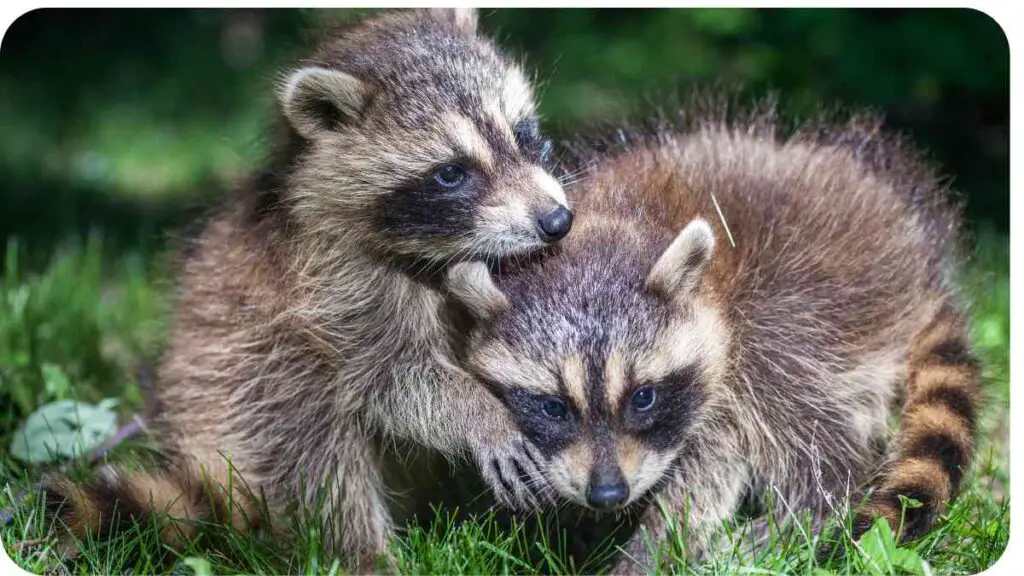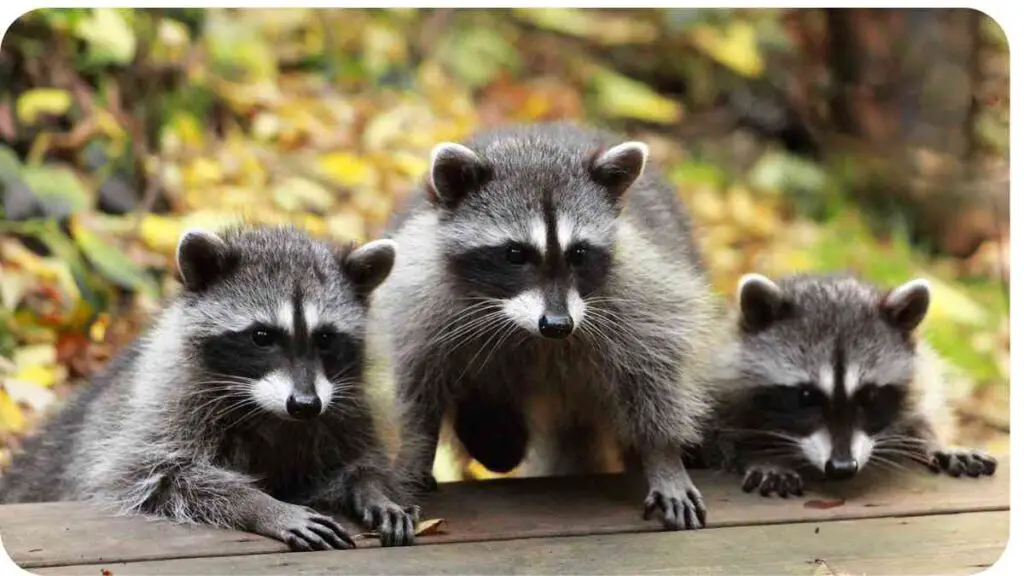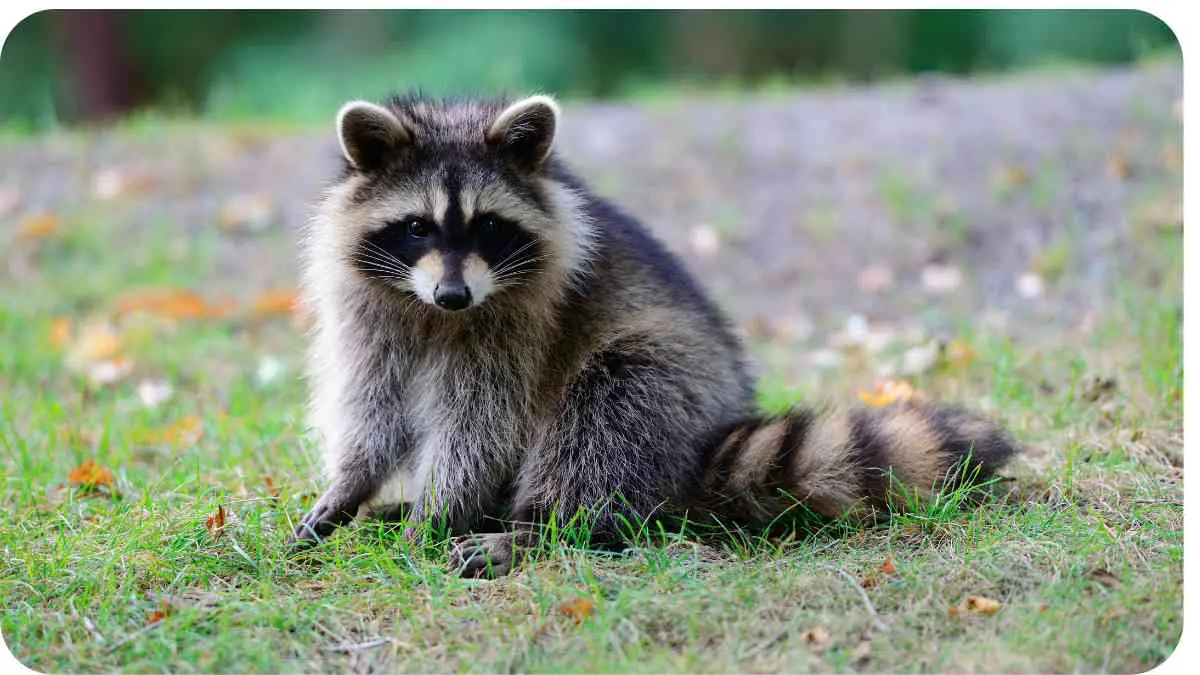Dealing with a raccoon rummaging through your dumpster can be a frustrating experience for homeowners and businesses alike. These resourceful creatures not only create a mess but can also pose health risks and legal concerns. In this guide, we’ll explore effective strategies to handle raccoons in your dumpster and prevent future encounters.
| Key Takeaways |
|---|
| Properly secure your dumpster with a lockable lid to prevent raccoons from accessing its contents. |
| Implement natural repellents or deterrents to discourage raccoons from frequenting your dumpster. |
| Regularly clean and maintain your dumpster to reduce odors that attract raccoons and other wildlife. |
| Contact local wildlife services or animal control for assistance in safely removing raccoons. |
| Stay informed about local wildlife regulations to handle raccoon encounters responsibly. |
2. Understanding Raccoon Behavior
Raccoons are intelligent mammals known for their dexterous paws and curious nature. They are primarily nocturnal and omnivorous, often scavenging for food in urban and suburban areas. Understanding their behavior is key to effectively managing them.
When dealing with raccoons, understanding their nocturnal habits is crucial. Often, munching on peanuts left outside can attract them, making prevention key to managing their presence.
Table: Common Characteristics of Raccoons
| Characteristic | Description |
|---|---|
| Nocturnal Behavior | Active primarily during the night, making them difficult to spot during the day. |
| Omnivorous Diet | Eat a variety of foods, including fruits, vegetables, small animals, and garbage. |
| Agile Climbers | Excellent climbers, they can easily scale fences and access rooftops. |
| Curious Nature | Known for exploring new environments and investigating potential food sources. |
Raccoons’ adaptability and curiosity make them challenging pests to deter once they’ve found a food source like your dumpster.
3. Signs of Raccoon Activity

Identifying signs of raccoon activity early can help you take proactive measures to address the issue before it escalates. Look out for:
- Knocked-over trash cans or scattered garbage.
- Paw prints around the dumpster area.
- Foul odor or droppings near the dumpster.
These signs indicate frequent visits by raccoons seeking food or shelter.
Protecting your property from squirrels involves strategic planning and effective deterrents. Learn comprehensive strategies to keep them away and safeguard your outdoor spaces.
4. Why Raccoons are Attracted to Dumpsters

Dumpsters provide raccoons with a readily accessible source of food, shelter, and potential nesting sites. Their keen sense of smell can detect food remnants from a considerable distance, making dumpsters attractive targets, especially in urban environments where food waste is abundant.
5. Health Risks Associated with Raccoons
While raccoons may seem harmless, they can carry diseases such as rabies, leptospirosis, and raccoon roundworm. Their feces and urine can contaminate surfaces and pose health risks to humans and pets. Proper handling and disposal of waste contaminated by raccoons are essential to prevent the spread of diseases.
6. Legal Considerations and Regulations
Before taking action against raccoons, it’s crucial to be aware of local laws and regulations regarding wildlife management. Some areas may have specific guidelines on trapping, relocating, or euthanizing nuisance animals like raccoons. Contacting local wildlife authorities or animal control agencies can provide guidance on legal procedures.
Curious about why crows bang on your roof? Explore their behavior and potential motivations in our in-depth exploration of avian interactions with urban environments.
7. Preventive Measures
Preventing raccoons from accessing your dumpster is the most effective way to manage their presence. Implementing preventive measures can help deter raccoons and minimize potential conflicts.
Table: Effective Methods to Deter Raccoons
| Method | Description |
|---|---|
| Secure Lid | Use a sturdy, lockable lid on your dumpster to prevent raccoons from accessing its contents. |
| Enclosure | Install a fence or enclosure around the dumpster to restrict raccoon access. |
| Motion-Activated Lights | Install lights that activate with motion to deter nocturnal raccoons. |
| Repellents | Use natural or commercial repellents that emit odors unpleasant to raccoons. |
By combining these methods, you can create a barrier that discourages raccoons from entering your dumpster area.
8. Natural Repellents
Natural repellents can be effective in deterring raccoons without harming them or the environment. Substances like ammonia-soaked rags or pepper spray can be strategically placed around the dumpster to discourage raccoons from approaching.
Looking for budget-friendly flower bouquet delivery options? Discover tips on how to get cheap flower arrangements without compromising on quality or service.
9. Setting Up Physical Barriers
Physical barriers such as wire mesh or bungee cords can prevent raccoons from lifting dumpster lids. Ensure these barriers are securely fastened to withstand the persistent efforts of determined raccoons.
10. Proper Dumpster Maintenance
Regularly cleaning and maintaining your dumpster can help reduce odors that attract raccoons. Promptly dispose of garbage and ensure lids are securely closed after each use to minimize food odors that attract wildlife.
11. Safe Removal of Raccoons
If you discover a raccoon in your dumpster, it’s important to handle the situation safely and responsibly. Follow these steps:
- Assess the Situation: Determine if the raccoon is alone or with offspring. Approach cautiously to avoid startling the animal.
- Call Wildlife Services: Contact local wildlife services or animal control for assistance. They have the expertise and equipment to safely remove raccoons.
- Avoid Direct Contact: Do not attempt to handle raccoons yourself, as they may become defensive if threatened.
12. Dealing with Repeat Offenders

If raccoons continue to access your dumpster despite preventive measures, reassess and reinforce your strategies. Consider consulting with wildlife experts for additional advice on deterring persistent raccoons.
Finding reliable flower delivery services can be challenging. Explore our guide on where to find the best options for timely and beautiful floral arrangements.
13. Community Involvement and Awareness
Engaging with your community can foster collective efforts to manage raccoon encounters effectively. Share information and best practices with neighbors and local businesses to promote awareness and proactive measures.
14. Professional Assistance
In cases where preventive measures prove insufficient, consider hiring professional wildlife control services. They can provide specialized solutions tailored to your specific raccoon management needs, ensuring effective and humane outcomes.
15. Conclusion
Managing raccoons in your dumpster requires a combination of proactive measures, awareness of local regulations, and responsible handling practices. By implementing preventive strategies and seeking professional assistance when needed, you can mitigate risks and maintain a clean, safe environment for yourself and your community.
Further Reading
Here are some additional resources to explore for more information on managing raccoons in dumpsters:
- Toronto Wildlife Centre – Raccoons Getting in Garbage and Compost Bins: Learn about common problems with raccoons accessing garbage and compost bins, and effective strategies to prevent these issues.
- Wildlife Removal – Raccoons and Dumpsters: Explore methods and tips for preventing raccoons from accessing dumpsters and causing nuisances in urban environments.
- Skedaddle Wildlife – What to Do When a Raccoon is Stuck in a Dumpster: Find out how to safely handle situations where raccoons become trapped in dumpsters and the best practices for humane removal.
FAQs
How can I prevent raccoons from getting into my dumpster?
Implementing secure lids, using repellents, and maintaining cleanliness are effective ways to deter raccoons.
What should I do if I find a raccoon in my dumpster?
Contact local wildlife services or animal control for assistance in safely removing the raccoon.
Are there legal implications for dealing with raccoons in dumpsters?
Yes, it’s important to be aware of local wildlife regulations regarding trapping and handling raccoons.
What are the health risks associated with raccoons in dumpsters?
Raccoons can carry diseases like rabies and their feces may spread harmful bacteria, posing health risks.
How can I discourage raccoons from returning to my dumpster?
Regularly clean and maintain your dumpster, and consider using motion-activated deterrents to discourage raccoons.

I am Hellen James, a landscape architect. For many years I have written about landscaping for various publications; however, recently decided to focus my writing on personal experience as a profession.

